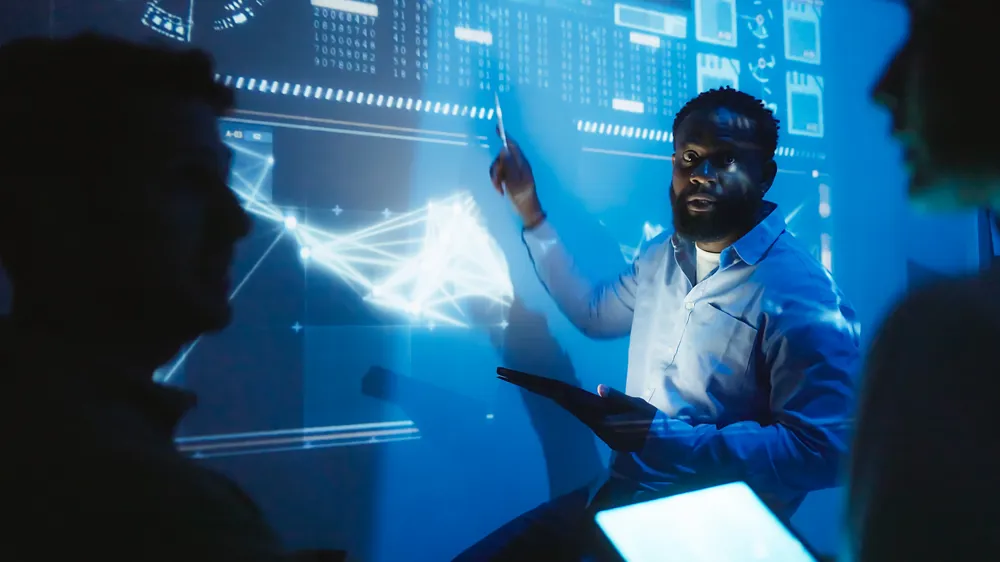Justin Barad, CEO and Co-founder, OSSO VR: Gaming Meets Medicine
June 30, 2021


May/June 2021
More articles in this issue:

This virtual reality platform allows surgeons to practice procedures in a safe and repeatable environment before entering the operating room.
How can surgeons get real world surgical experience without the risk of injuring a patient? Enter Osso VR, an innovative technology developed by Justin Barad, MD, CEO and co-founder of Osso VR. The UCLA and Harvard trained orthopedic surgeon took his love of gaming to address the ongoing surgical skills gap. “Since middle school and high school, I have loved the gaming realm,” said Barad. “In dealing with a family member with autoimmune challenges, I wanted to develop software and technology to help people. Technology and advances are happening at lightning speed and emerging medical technologies can be more complicated than surgical techniques from the past. Bottomline, doctors need to keep practicing to stay current.”
Osso VR is a clinically validated surgical training platform designed for medical device companies, practicing surgeons, residents and medical students of all skill levels. Using immersive VR technology, the scalable platform offers a realistic, hands-on training environment that leads to real-world performance improvements and ultimately improved patient outcomes. Although numbers vary between studies, generally a surgeon needs to perform surgeries, under supervision, for 75 to 80 patients before being deemed “trained as safe” for the procedure. Surgeons work in supervised teams, although not every surgery involves the same medical personnel. According to Barad, on average, there are up to eight people in an operating room at a time, yet often the focus is only on training the surgeon, often excluding the other critical members of the team.
Training Delays
When the COVID-19 pandemic began, the American College of Surgeons stated that many states issued postponements on “non-essential” surgeries that led to a backlog of postponed procedures. The surgical backlogs are only recently starting to resolve. This has created a chain reaction of delaying hands-on training for trainees and surgical teams in practice that will likely have a long-standing effect on the supply and quality of available health care personnel.
As the first training platform to incorporate assessments into its modules, Osso VR measures the surgical trainee’s knowledge, accuracy and overall efficiency of a procedure. A recent University of Illinois College of Medicine at Chicago study published in August 2020 examined whether VR surgical training would show an improvement when compared with traditional training in procedural accuracy and completion rates for a procedure. Its conclusion found that using Osso VR more than tripled the odds of completing a procedure successfully (25% to 78%). This demonstrates that VR has the potential to significantly improve surgical performance for health care professionals across the board, which should lead to better outcomes for patients. Another study performed at UCLA and published in the Journal of Surgical Education, Osso VR showed an average of 230% improvement in surgical performance.
Osso VR’s award-winning team of clinical, medical device and illustration experts are from leading institutions including Apple, Electronic Arts, Industrial Light & Magic, Medtronic, Microsoft and Sony. Osso VR’s exceptional level of visual fidelity surrounds every aspect, from anatomical detail to the OR environment, creating a virtual operating room that allows for collaborative training for the surgical team. “We can give surgeons in our network another tool to continue to push the limits of what's possible when it comes to providing value for their patients,” stated Barad. To learn more, visit ossovr.com.
Join our community of innovators and shape the future of technology.



